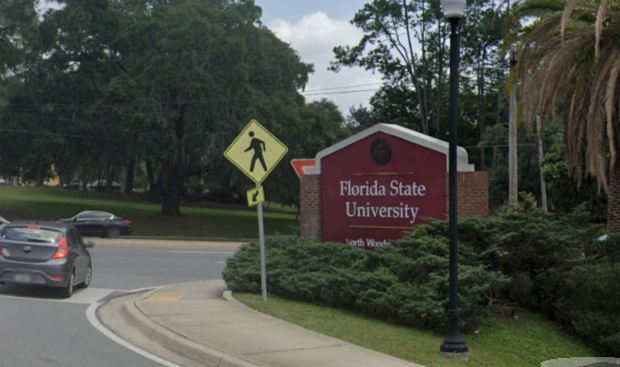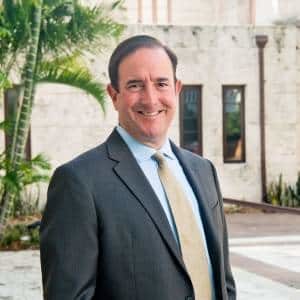
A tragic shooting unfolded Thursday at Florida State University, resulting in the deaths of two individuals and injuries to six others. The incident sent shockwaves through the campus and the wider Tallahassee community, according to Fox News.
Authorities have identified the suspect as Phoenix Ikner, a 20-year-old FSU student and the son of a Leon County Sheriff’s deputy. Officials say Ikner used a handgun that belonged to his mother, a veteran deputy with more than 18 years of service. The weapon had previously been purchased from the sheriff’s department after she transitioned to a new service firearm.
Ikner, who was also a member of the Leon County Sheriff’s Office’s Youth Advisory Council and had participated in several department training programs, was shot by responding police officers and taken to the hospital. He has reportedly refused to cooperate with investigators.
The shooting began around 11:50 a.m. near the university’s student union building. Campus alerts instructed students and faculty to shelter in place for several hours as law enforcement agencies at the local, state, and federal levels converged on the scene to secure the area and aid victims.
Tallahassee Memorial HealthCare confirmed it was treating multiple victims suffering from gunshot wounds. In addition to the handgun, officials believe Ikner may have had access to a second weapon, a shotgun.
The suspect’s mother, a long-serving deputy, has been described by Sheriff Walt McNeil as having an “exceptional” record of service. However, the fact that her son obtained one of her firearms has raised questions about gun storage and access. Legal analyst Misty Marris noted that the suspect’s age complicates the issue of parental culpability under Florida law, as the law typically addresses the secure storage of firearms in relation to minors.
Former FBI assistant director Chris Swecker commented on the gravity of the situation, stating, “That’s your worst nightmare as a law enforcement officer — that you lose your weapon or lose track of your weapon and then it ends up in a shooting like this, let alone your own child using the weapon to commit violence like this.”
Authorities continue to investigate the circumstances surrounding the shooting and the suspect’s access to firearms. The campus community remains on alert as officials process the aftermath of this devastating event.

In the aftermath of Thursday’s deadly university shooting at Florida State University, which left two dead and six injured, questions about legal accountability have intensified. Experienced school shooting attorney Michael Haggard discusses the rights of victims and families to pursue civil claims against negligent parties.
Editor Darla Medina: What legal options exist for victims injured in campus shootings like the FSU tragedy?
Attorney Michael Haggard: Survivors and families can pursue civil claims for negligence if failures in security, weapon storage, or threat assessment contributed to harm. Even if criminal charges don’t apply to third parties, civil courts allow victims to seek damages for medical costs, trauma, and loss.
Medina: How might negligence apply here, given the shooter’s access to a deputy’s firearm?
Haggard: Florida’s 2023 secure-storage law focuses on minors, but civil liability isn’t limited by age. If the firearm was stored unsafely or negligently accessible, the owner—in this case, the deputy—could face claims. Universities may also face scrutiny if security protocols failed during the attack.
Medina: What about the shooter’s law enforcement ties and training?
Haggard: The suspect’s involvement in sheriff’s office programs raises questions about whether warning signs were overlooked. Training programs often emphasize threat recognition—if red flags existed, victims could argue the department missed opportunities to intervene.
Medina: How do recent cases inform potential outcomes here?
Haggard: Precedents like the Parkland settlement, where families secured $130 million from the FBI and school district, show institutions can be liable for preventable violence. Courts increasingly recognize that weapon owners and entities must act responsibly to deter access by dangerous individuals.
Medina: What immediate steps should victims take?
Haggard: Document everything: medical records, communications with the university, and witness accounts. Consult a lawyer to assess if security failures—like delayed lockdowns or inadequate weapon-storage laws—played a role. Time limits apply, so acting swiftly is critical.
Medina: Final thoughts for the community?
Haggard: This isn’t about blaming law enforcement or the university prematurely. It’s about ensuring every responsible party is held to account—and that victims receive the support they deserve.
To those affected by these horrible tragedies: You are not alone. Legal pathways exist to seek accountability, and communities stand ready to support you through advocacy, counseling, and legal guidance. Prioritize your well-being, document your experiences, and connect with professionals who can help navigate this difficult journey. Healing begins with action—reach out, speak up, and demand the justice you deserve.
 info@legalherald.com
info@legalherald.com